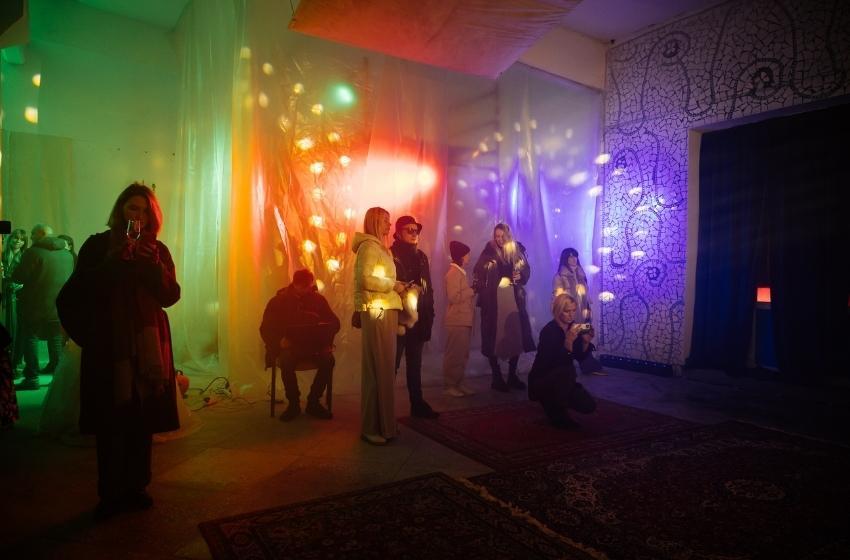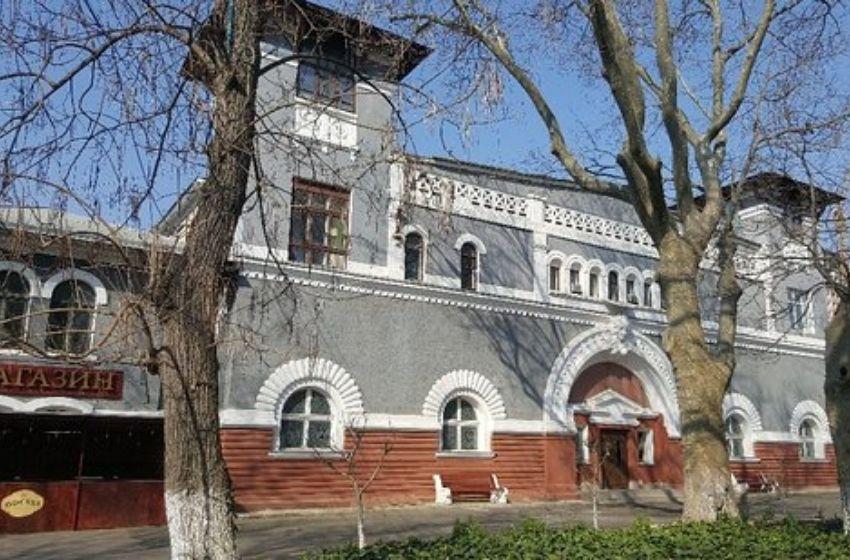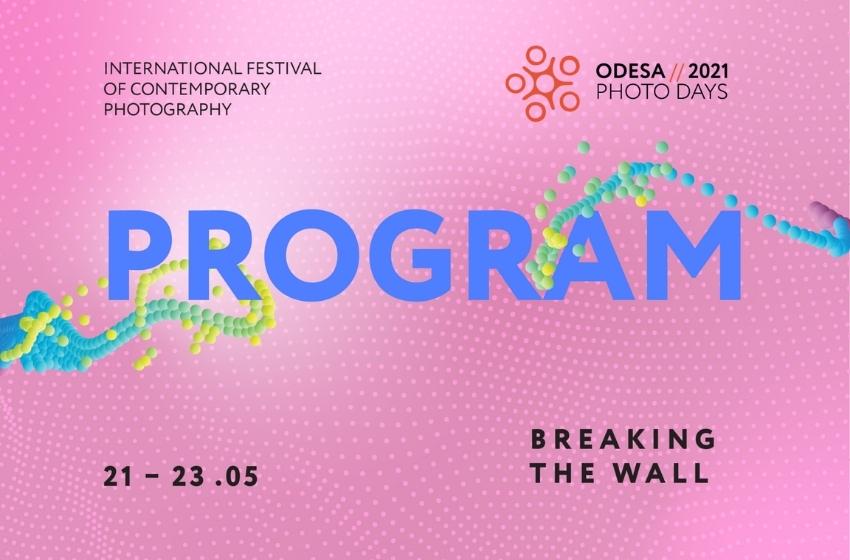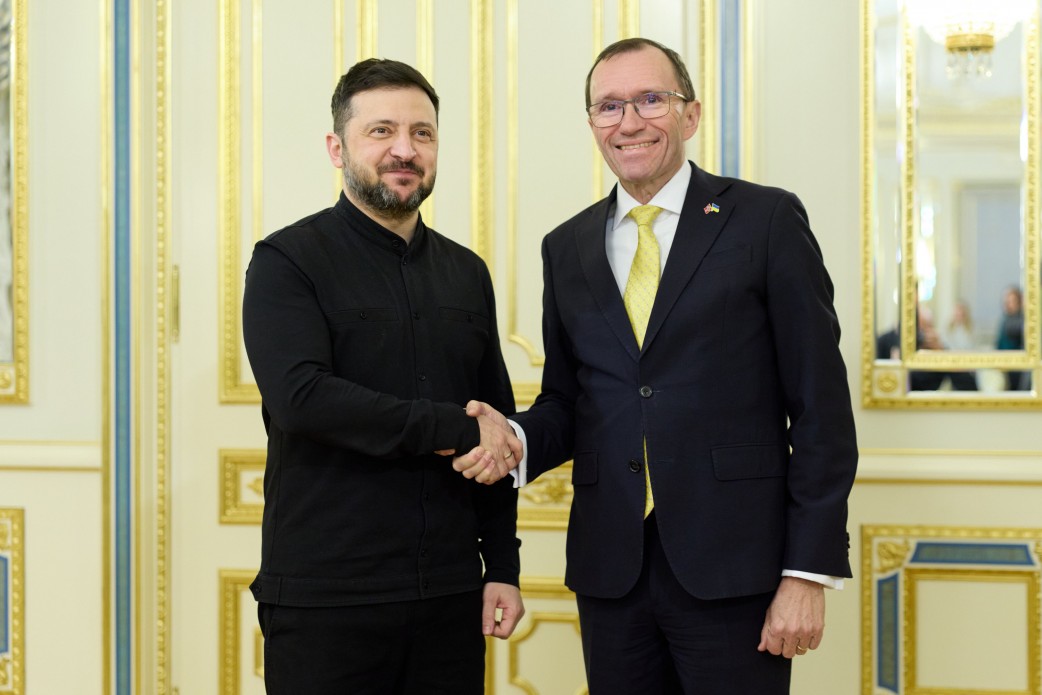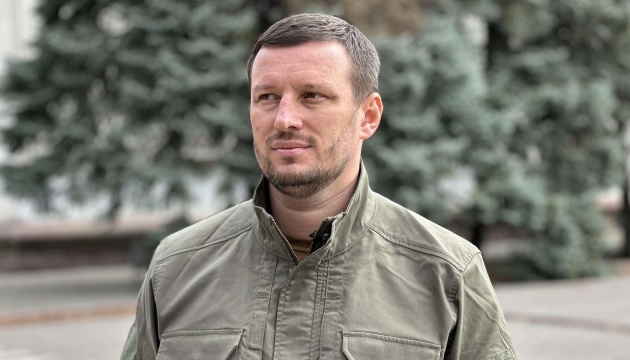Ten years later, the memory of Pierangelo Causetti, manager of Campari Group, who worked in Odessa for two years (2010-2012).
The first time I arrived in Odessa was March 2010, there was the company's driver waiting for me at the airport, a big man with a confident and kind attitude who addressed me with a "Pierangelo?" Ukrainian always sounds a bit like “Pierangela†and I've never quite understood why.
The Campari Group, with which I worked for 25 years, bought in 2008 the historic company of Odessa Sparkling Wines in Frantsusky Boulevard n. 36, a historic avenue of the city close to the seacoast south of the port and I had the task of aligning the industrial structure to the Campari standard.
Returning to the first trip, the impression passing from the airport to the city centre was progressively shaped by the greyness of the suburbs up to the tree-lined avenues, statues and fountains of the centre coloured and animated by inhabitants and tourists from all over the world. And that word "Boulevard" rang in my head which on the one hand reminded me of Sunset Boulevard, Billy Wilder's masterpiece with the great Gloria Swanson, and on the other made me think of Paris and the charm of Montmartre.
Odessa was like this, a summary, a flashback, a reminder of the most beautiful emotions you have inside and that you have experienced in the places that have remained in your heart: a magical place that then gently accompanies you towards the discovery of a new flower that has just blossomed , or unchanged for years, drawn on the glass of a school window or on a garden wall.
Flowers already, Odessa was a city of flowers, everywhere. When I arrived at the factory, the historic beauty of the buildings and their inexorable decline was surrounded by people in charge of taking care of the flowers in the gardens and flowerbeds; due to a technical problem in production the staff had been dedicated to the flowers. It was typical in Odessa, in the streets, squares, Boulevards, to see people dedicated to flowers, with passion and constancy, and the results were seen and appreciated by everyone, almost instinctively.

The plant consisted of various areas, certainly the central historic building was the most compelling and, alas, also the most decadent from a structural point of view, so much so that the cellars in the basement were no longer usable (in reality there were of the base wine tanks which were suitably filled to maintain a uniform load on the foundations of the building).
I postponed the real estate aspects to devote myself exclusively to the industrial part and to what was necessary for the optimal functioning of production activities: for me this essentially meant working with people, first from the organisation, then to the processes. A drastic reduction in personnel was necessary and with Maksym, the Business Unit director, we were able to manage with the least possible social impact also thanks to the favourable seniority situation of the employees: we went from 340 employees to 100 in the period of one year, improving product quality and overall efficiency.
Natalia in Human Resources, Andrey in Production, Yuri in Logistics and Vyacheslav in Engineering were, together with all their collaborators, my angels: people who dedicated that period of their life to a goal that I asked them to achieve together, a team textbook. I will always remember their patience, their respect, their silent passion, their kindness, their availability; I owe all of them the success I achieved in my mandate in Odessa, a difficult and challenging task even for a large Group like Campari.
So, I remember the people of Odessa, respectful and kind, helpful and almost secretly passionate, as if there was still something or someone standing in the way of the free flow of things, of everything.
In spite of what was considered by the Italian colleagues, Odessa sparkling wine was the best Ukrainian on the market; one day I asked to do a tasting with our competitors and out of about twenty bottles, our Odessa turned out to be the best! It was in fact what I gathered here and there in the city during my wandering in the evenings or weekends and trying to interview the citizens: Odessa was the best, the history and the product of the city, the pinnacle of Branding Yourself, period.
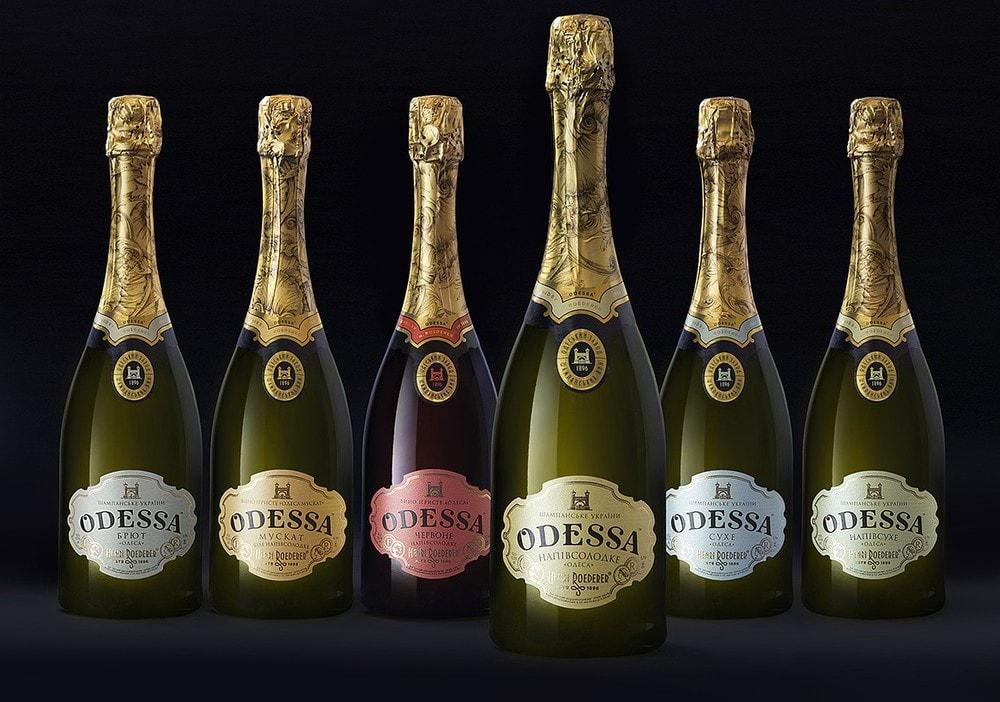
We were all proud of our work, even if the company then made different choices and in 2014, the company was sold without major strategies for the future: a wasted talent.
Within two years, together with my angels, we brought the plant to a level absolutely comparable to Campari standards and this was recognised by those who later bought the company, complete with compliments during the due diligence in which I had the opportunity to participate. Let's say that apart from top-level environments such as Shabo (about 100 Km from Odessa), the average of the Ukrainian manufacturing plants certainly fell short of the organisation and operational excellence that Odessa Sparkling Wines at 36 Frantsusky Boulevard had achieved. The word Boulevard must be there because perhaps it gives a sense of momentum towards magical times like the Belle Epoque, like the story of that tree-lined avenue equipped with almost country cottages for summer holidays, but close to the city centre and sunny beaches and perhaps with a vague memory of that era. Or, perhaps, to remember the wonderful bottle of Perrier-Jouët Belle Epoque champagne, perhaps dreamed of by that Henry Roederer founder of the company in 1898.
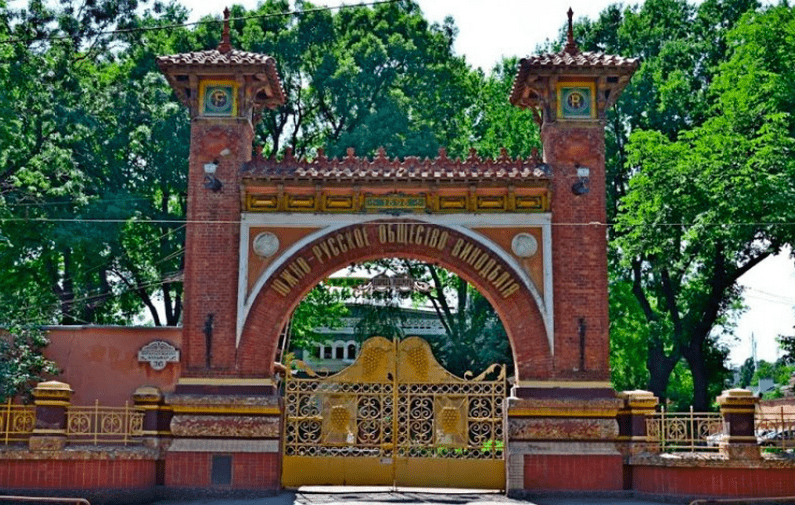
Of the people of Odessa I also remember the subtle and appropriately dosed irony even in dramatic situations; one weekend I was left without water and the owner of the house, Vlad, came to see me and taking me to the window overlooking the sea he said: "Pierangelo, she's waiting for you!" The water. Incredible! After all, I was the only one worried in the 14-story building; everyone looked at me as if I was crazy, or worse.
I met Vlad in the morning on my way to work around 8.00, he arrived from the beach where he went to swim, even in winter, almost every morning, his hair was a bit long, a bit wet; I was left feeling cold all morning!
Aside from a few outings with my angels, I spent my days working, sometimes even on weekends, preparing programs and reports, or, better yet, visiting the city.
Odessa was a continuous succession of monuments, statues, fountains, gardens, flowers, and restaurants, many, with a unique creativity in the furnishings, never seen elsewhere, not even in the most authoritative magazines; the cuisine is sometimes extraordinary and almost always in good taste, at all hours.
Obviously the centre was a bit my point of reference, where I had discovered my comfort zone between Deribasovskaya Street and the Potemkin Stairs, among shops, bookshops, museums, the opera house, and an ever-present cup of borsch at Kompot where often there was a bit of French or perhaps a bit of Belle Epoque music.
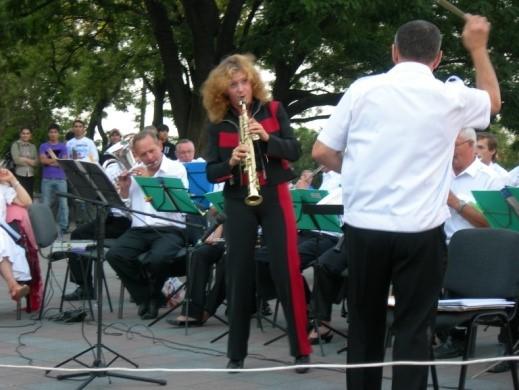
In hot periods (and what a heat!) I also went to the beach - not like Vlad at 8 in the morning - I took the colourful cable car near my house in the middle of the morning and went down along the coast, strolling and choosing a place for a packed lunch or in some interesting places.
In the centre of Odessa there were many musical activities, groups, local bands, or other initiatives of various kinds, so much so that one day I had the opportunity to meet Anna Stepanova and as a semi-professional ex saxophonist it was truly fantastic; Anna had incredible strength, her sax was exactly an extension of her body and she treated it as such with grace and harmony, generating those melodies that resonated throughout Odessa.
Anna Stepanova performed with a group on which her skills as an excellent instrumentalist and impeccable performer obviously stood out (she is still today an internationally recognized saxophonist and is a soloist at the Odessa Philharmonic Society).
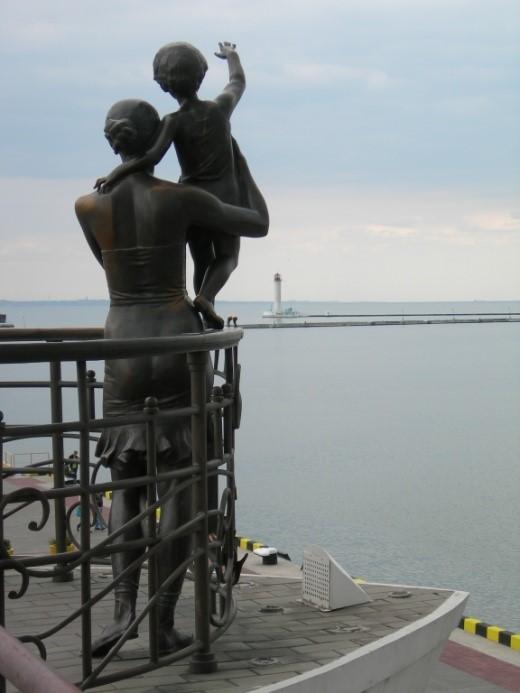
On Sundays, I never missed my walk in the centre, and often, in the avenue in front of the Opera Theatre, I stopped to see the displays of wedding ceremonies where it was easy to meet truly unique creativity and initiatives (typical of all Odessa).
What about the legendary Potëmkin staircase, after a walk in the centre I normally faced the descent between its fantastic ramps, like a dip in the Black Sea directly from the city plateau to the waters of the port.
And here waiting for me was always the woman with the child in her arms who greets the sailor father, a statue as suggestive as it is emblematic in representing the expectation of a return, but also of a change, of something new, of something that will bring improvement of a transitory situation that brings sadness and pain.
The image of that statue is always in my heart together with the hope that that wait will be shorter and shorter and that the serenity and joy, with which Odessa has always welcomed and smiled, will soon return.
Written by Pierangelo Causetti, retired manager of Campari Group















